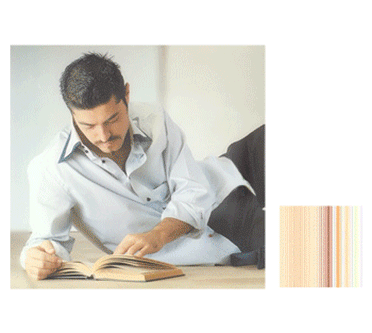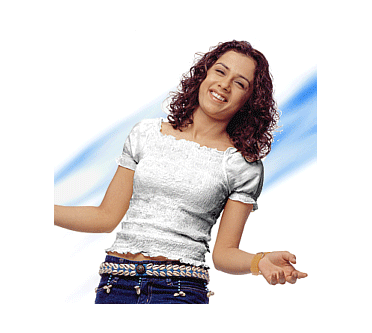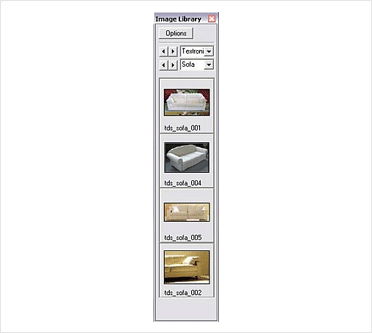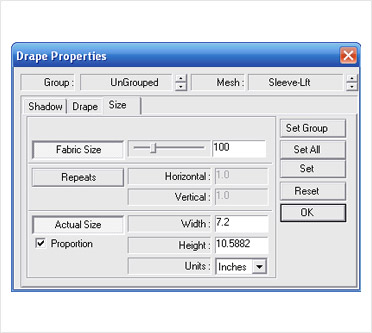Screen Authoring in 3D Fabric Simulation Software
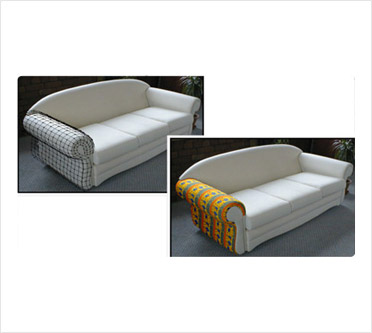
3D Fabric Mapping Software converts 2D scanned images into 3D surfaces by adding depth dimensions.
Key parameters like light source, shading, and viewing distance are stored in 3DP formats for accuracy in Fabric Visualization Software.
3D CAD for Textile Design provides tools for generating and editing grids with freehand or rectangular options, enabling flexible texture mapping.
Multiple grids can be created for specific areas (e.g., cushions, armrests) and edited to rotate, extend, or bend, ensuring adaptability in Digital Fabric Draping.
Features like fold marks and mesh editing bring mapped designs closer to reality, enhancing previews in 3D textile design software.
Scanned images can be saved as .3DP files for future simulations and texture mapping.
- User can scan in photographs / download images of furnishings and models. Now these images are in 2 dimensions i.e. WIDTH and HEIGHT.
- Specific tools are provided for selecting the areas on which fabric designs are intended to be texture mapped and the strong algorithms of Design 3D create the 3rd dimension from the image and provide the depth information to convert these 2 dimensional images into 3 D surfaces.
- Powerful tools are provided, which allow the user to edit the wire mesh created to enhance the depth grids create by Design 3D.
- Multiple grids can be created for different areas viz. Cushions, Back, Armrest, etc from a scanned image of a Sofa seating system.
- The grid points can be individually manipulated OR multiple grid points can be simultaneously arranged as required. Facilities to rotate the grids, Add folds and a host of other features enable the user to Screen Author an image.
- Screen Authoring is a one-time operation and Design 3D saves the image as a .3DP file in the library for future Texture mapping.









